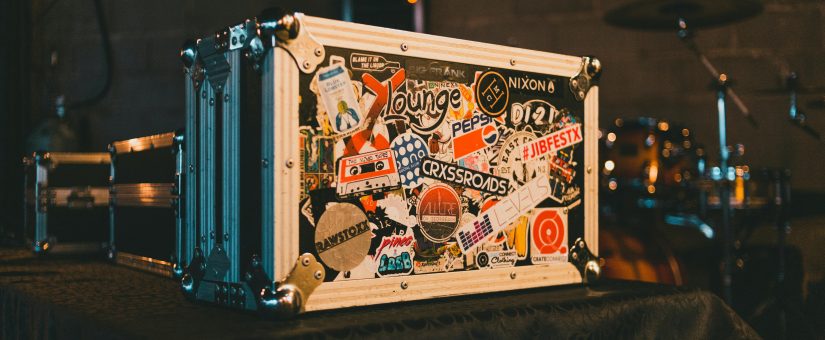
Touring as a Band: The Complete Journey
Introduction
For many bands, touring is the lifeblood of their career. It’s not just a means to share their music but a way to connect deeply with fans, generate income, and grow as artists. However, the path to a successful tour is filled with challenges and intricacies. This article explores the various stages of touring, from planning to post-tour reflection, while offering insights into the realities of life on the road.
1. The Pre-Tour Phase
1.1 Planning the Tour
Planning a tour requires strategic thinking and organization. Bands need to decide on:
- Tour Goals: What do you want to achieve? Are you looking to promote a new album, increase your fanbase, or make a profit?
- Cities and Venues: Consider where your audience is concentrated. Research local venues that suit your style and capacity needs. Some bands use booking agents to help navigate this process.
1.2 Budgeting
Creating a detailed budget is crucial to avoid financial pitfalls. Key components include:
- Revenue Projections: Estimate ticket sales, merchandise sales, and potential sponsorships.
- Expense Estimates: Consider costs for transportation, accommodation, food, insurance, and promotional materials.
- Contingency Funds: Set aside funds for unexpected expenses, like vehicle repairs or medical emergencies.
1.3 Promotion
Effective promotion can make or break a tour. Strategies include:
- Social Media Marketing: Use platforms like Instagram, Facebook, and Twitter to reach your audience. Regular updates and engaging content can build excitement.
- Local Media: Connect with local newspapers, radio stations, and blogs to generate buzz in the cities you’ll visit.
- Collaboration: Work with local artists or influencers to broaden your reach and tap into their audiences.
2. Logistics of Touring
2.1 Transportation
Choosing the right transportation is critical for comfort and efficiency:
- Vehicle Selection: Bands typically use vans, buses, or RVs. Consider factors like space for gear, comfort for long drives, and fuel efficiency.
- Routing: Map out your route to minimize driving time and costs. Use apps that help plan optimal routes and account for traffic conditions.
2.2 Accommodation
Finding suitable places to stay is essential for a successful tour:
- Booking: Look for deals on hotels, motels, or even hostels. Some bands find success using platforms like Airbnb.
- Crowdfunding Stays: Some fans offer to host bands, providing a unique opportunity to connect with supporters.
- Group Arrangements: If traveling with multiple bands, consider sharing accommodations to reduce costs.
2.3 Equipment Management
Properly managing gear is vital for a smooth touring experience:
- Inventory Check: Before leaving, conduct a thorough inventory of all instruments, sound equipment, and merchandise.
- Maintenance: Ensure everything is in good working order. Regular maintenance can prevent issues on the road.
- Packing Strategy: Use protective cases for instruments and organize gear in the vehicle to prevent damage during travel.
3. Life on the Road
3.1 Daily Routines
Establishing a daily routine can help maintain balance:
- Scheduling: Create a daily itinerary that includes travel times, sound checks, meals, and downtime. Keeping a consistent routine can help with morale.
- Flexibility: While routines are important, being adaptable to changes and unexpected challenges is crucial.
3.2 Health and Well-Being
Staying healthy on the road can be a challenge, but it’s essential:
- Nutrition: Make an effort to eat well. Opt for healthy snacks and meals instead of relying on fast food.
- Exercise: Find time for physical activity, whether it’s a quick workout or exploring the cities you visit.
- Mental Health: Touring can be stressful. Regular check-ins with band members can help address any issues before they escalate.
3.3 Team Dynamics
Navigating interpersonal relationships is crucial for a successful tour:
- Communication: Foster an environment where band members feel comfortable expressing their thoughts and feelings.
- Conflict Resolution: Address conflicts promptly and constructively. Establishing ground rules for behavior can help prevent issues.
4. Performing Live
4.1 Crafting the Setlist
A captivating setlist can enhance the live performance experience:
- Song Selection: Choose a mix of new tracks and fan favorites to keep the audience engaged.
- Pacing: Arrange songs in a way that creates an emotional journey for the audience, building energy and allowing for quieter moments.
- Local Touches: Consider adding a local song or cover to create a connection with the audience.
4.2 Merchandise Sales
Merchandise can be a significant source of income:
- Design: Create appealing merchandise that reflects your brand. T-shirts, stickers, and albums are common choices.
- Display: Set up an attractive merchandise table at each venue to draw attention. Engage with fans while they browse.
- Pricing: Consider offering bundles or discounts to encourage sales.
4.3 Connecting with Fans
Building relationships with fans is one of the most rewarding aspects of touring:
- Meet-and-Greets: Organize opportunities for fans to meet the band. This can deepen connections and foster loyalty.
- Social Media Engagement: Use social media to interact with fans, sharing behind-the-scenes content and responding to comments.
- Post-Show Interaction: Spend time with fans after shows, whether at the merch table or nearby, to create lasting memories.
5. Post-Tour Considerations
5.1 Financial Review
After the tour, it’s essential to evaluate financial performance:
- Profit and Loss Analysis: Review income from ticket sales and merchandise against expenses. This will inform future budgeting and planning.
- Tax Considerations: Keep track of expenses for tax purposes. Consider consulting a professional for guidance.
5.2 Gathering Feedback
Feedback can provide valuable insights for future tours:
- Fan Surveys: Consider creating a survey for fans to share their experiences. This can highlight strengths and areas for improvement.
- Self-Reflection: Band members should also reflect on what worked and what didn’t. Open discussions can lead to valuable insights.
5.3 Rest and Recovery
Taking time off after a tour is vital for mental and physical health:
- Recharge: Allow for a break to recover from the physical demands of touring. Rest and relaxation can reignite creativity.
- Reconnect: Spend time with family and friends to regain a sense of normalcy after being on the road for extended periods.
Conclusion
Touring as a band is a complex but rewarding journey. From the initial planning stages to the reflections after the last show, each aspect plays a vital role in shaping the overall experience. Embracing the adventure, fostering connections with fans, and maintaining strong relationships within the band can lead to unforgettable memories and continued growth as artists. Ultimately, the road may be challenging, but the music and the shared experiences make it all worthwhile.
This article provides a detailed overview of the touring experience for bands. If you’d like to expand on any specific section or need additional information, just let me know!
- On 12/30/2024


